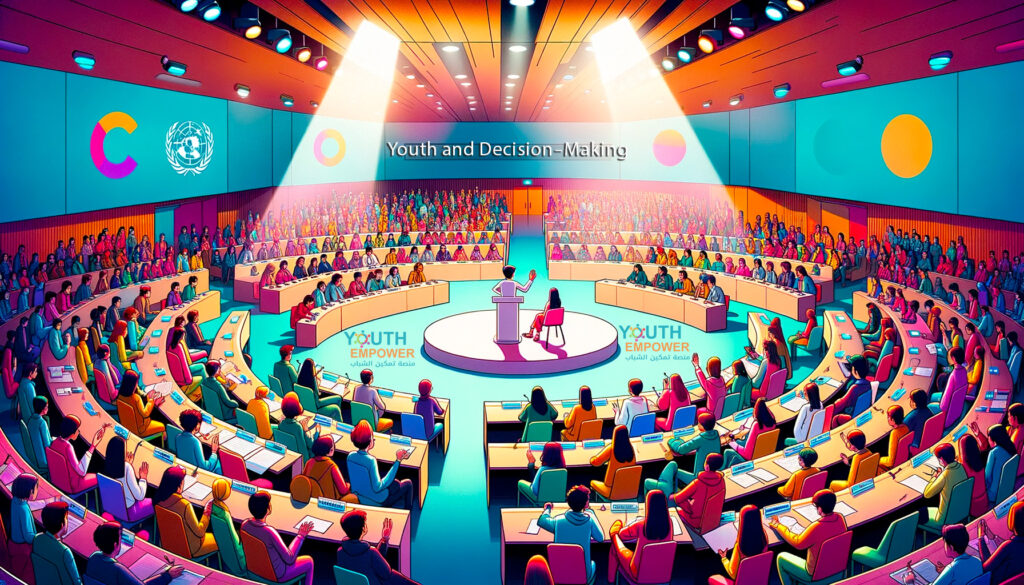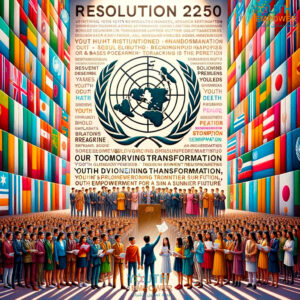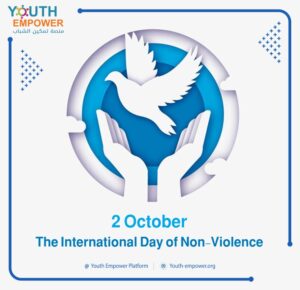Decision-Making and Youth: A Pivotal Role in Building the Future of Societies
In societies grappling with confusion and a lack of transparency, decision-making becomes paramount in young people’s lives.
The choices they make serve as crucial turning points that shape their futures and determine their paths. This highlights the importance of youth involvement in decision-making,
not only in their personal lives but also in public affairs.
Youth: Pillars of the Future and Progress
Youth are the driving force behind any society’s advancement and development.
Their active involvement in decision-making is not just a right but a necessity to ensure a sustainable future.
With fresh perspectives and creative energy, they can significantly contribute to enhancing the economic, social, and cultural life in their communities.
Youth’s Role in Enhancing Democracy and Transparency
Effective youth participation embodies the spirit of democracy and equality.
It fosters constructive interaction among different generations and encourages transparency and accountability,
leading to increased trust in government work and institutions.
How Can Youth Effectively Participate in Decision-Making?
1. Encouraging communication and dialogue: This involves supporting open and honest discussions between youth and decision-makers.
2. Training and education: Offering training programs to develop young people’s skills in leadership, negotiation, and crisis resolution.
3. Creating participation platforms: Such as workshops, forums, and advisory councils that allow for direct interaction and experience sharing.
4. Encouraging businesses and institutions: Promoting collaboration between governmental and non-governmental entities to enhance youth participation.

Challenges Facing Youth in Decision-Making:
Despite being the driving force of any society, innovators, adventurers, and future leaders,
youth face numerous challenges that may prevent their effective engagement in community development and building a better future.
A primary obstacle is the lack of opportunities, whether in education or the job market, leading to frustration and despair among young people.
Social Bias:
Including discrimination based on age, gender, sexual identity, race, or religion,
can limit youth opportunities and their ability to fully participate in their communities.
Many young individuals face stereotypes and strict social expectations that limit their potentials and diminish their ambitions.
Economic Hardships: The Hurdles in Youth’s Path to Decision-Making
Like poverty and economic instability, pose significant barriers for the youth.
Many struggle to find permanent, sustainable jobs and face multiple challenges such as low wages, job insecurity, and unregulated work.
These factors place immense pressure on the youth and undermine their ability to plan for the future.

Cultural and Traditional Obstacles Limiting the Ability of Youth to Make Decisions.
These obstacles play a significant role in dictating what youth can and cannot do.
In some societies, strict traditions and beliefs restrict personal and professional freedoms, limiting self-expression and innovation.
Such constraints stifle creative energy and prevent young people from learning, growing, and effectively contributing to a rapidly changing world.
Addressing these challenges requires a collective effort from all societal segments: governments, organizations, and the youth themselves.
By providing more opportunities, combating discrimination, working towards greater economic stability,
and respecting cultural and personal diversity, we can support and empower youth to become the leaders and innovators needed in our societies.
UN Security Council Resolution 2250:
Supporting Youth in the International Community: Adopted in 2015, UNSC Resolution 2250 is a significant step towards recognizing the importance of youth in international peace and security.
The resolution calls for increased youth participation in decision-making processes and emphasizes the necessity of respecting human rights and protection against crimes against humanity.
Youth participation in decision-making is not only a right they hold but a duty that societies must fulfill.
Actively involving youth is an investment in the future, achieving more equitable and sustainable communities.
Follow us on social media:
Facebook | Twitter | Instagram | WhatsApp




